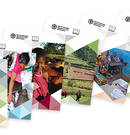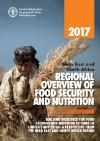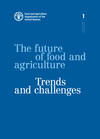Resources
Achieving the food security, nutrition and sustainable agriculture goals by 2030 requires a coordinated set of actions on a number of fronts: coherent policies and programmes, an increase of investments in line with national priorities and greater collaboration across different sectors and stakeholders.
It is in this context that FAO and the EU, through the “Food and Nutrition Security Impact, Resilience, Sustainability and Transformation” (FIRST) programme are supporting governments and their development partners in creating a policy and institutional environment that is conducive to the achievement of SDG2.
The 2017 Near East and North Africa (NENA) edition of the Regional Overview of Food Security and Nutrition comes under the theme of “building resilience for food security and nutrition in times of conflict and crisis”.
What will be needed to realize the vision of a world free from hunger and malnutrition?
After shedding light on the nature of the challenges that agriculture and food systems are facing now and throughout the 21st century, the study provides insights into what is at stake and what needs to be done. “Business as usual” is not an option. Major transformations in agricultural systems, rural economies and natural resources...
The international community is committed to ending hunger and all forms of malnutrition worldwide by 2030. While much progress has been made, conflict and human-induced and natural disasters are causing setbacks. This year’s The State of Food Security and Nutrition in the World warns that the long-term declining trend in undernourishment seems to have come to a halt and may have reversed, largely on account of the...
With the adoption of the 2030 Agenda for Sustainable Development and its ambitious goals for a more sustainable and equitable world, countries and their international partners committed themselves to regular monitoring and reporting on progress.





